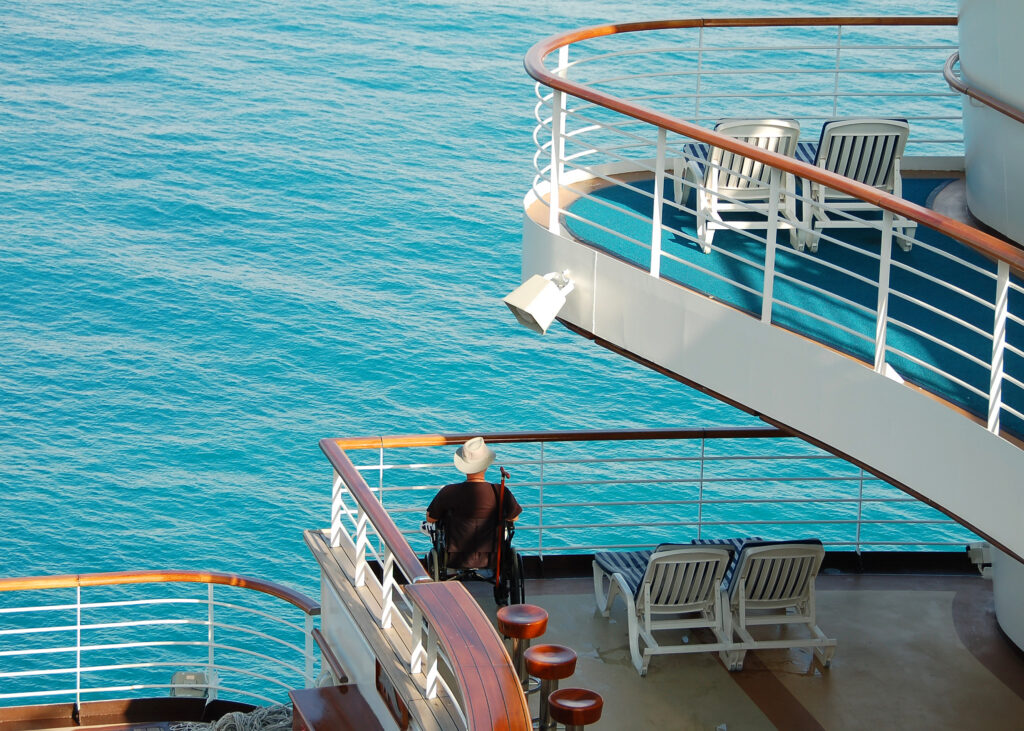If you’re wondering whether or not you can go on a cruise if you have mobility issues, the answer is a resounding yes! Cruise lines have gone above and beyond to ensure that individuals with mobility challenges can fully enjoy their vacation at sea. With accessible cabins, ramps, elevators, and specially trained staff, you can embark on a memorable cruise adventure without worrying about any mobility limitations. So pack your bags, because a fantastic voyage awaits, catered to your needs and ready to create unforgettable moments.
Understanding Mobility Issues
Having mobility issues should not prevent you from enjoying a wonderful cruise vacation. It is important to understand the different types of mobility issues and the challenges that people with these issues commonly face.
Types of Mobility Issues
Mobility issues can range from difficulty walking long distances to being completely wheelchair-bound. Some common mobility issues include arthritis, spinal cord injuries, muscular dystrophy, multiple sclerosis, and temporary mobility limitations due to injuries or surgeries.
Challenges Faced by People with Mobility Issues
People with mobility issues may face various challenges when going on a cruise. These challenges can include limited accessibility to certain areas of the ship, difficulty navigating through narrow corridors or crowded spaces, and limited access to onshore excursions that may not be wheelchair-friendly. However, with proper planning and considerations, these challenges can be minimized, allowing individuals with mobility issues to have an enjoyable and fulfilling cruise experience.
Choosing the Right Cruise
Selecting the right cruise line is crucial in ensuring a comfortable and accessible vacation for individuals with mobility issues. Fortunately, many cruise lines now offer accessible options and accommodations.
Accessible Cruise Lines
It is essential to research and choose a cruise line that caters to individuals with mobility issues. Several major cruise lines have made significant efforts to provide accessibility to all passengers. These cruise lines prioritize accessibility by offering amenities such as wheelchair-accessible cabins, accessible transportation options, and trained staff to assist individuals with mobility issues.
Itinerary Considerations
When choosing a cruise, it is important to consider the ports of call and the accessibility of the destinations. Ensure that the cruise itinerary includes ports that have wheelchair-friendly excursions or easily accessible facilities. Some destinations may not be suitable for individuals with mobility issues due to challenging terrain or limited accessibility. Researching the accessibility features of each port can help you make an informed decision when selecting a cruise itinerary.
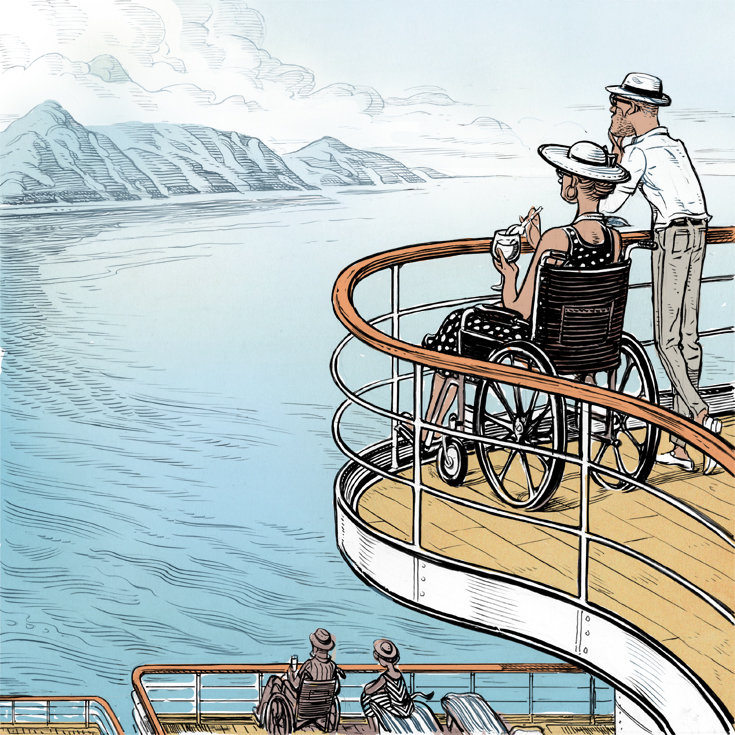
This image is property of static01.nyt.com.
Preparation and Planning
Proper preparation and planning are essential to ensure a smooth sailing experience for individuals with mobility issues. These steps can help make your cruise vacation worry-free and enjoyable.
Consulting with a Healthcare Professional
Before embarking on your cruise, it is advisable to consult with a healthcare professional specializing in mobility issues. They will be able to provide valuable advice, assess your specific needs, and recommend any necessary accommodations or medications.
Informing the Cruise Line
It is crucial to inform the cruise line about your mobility issues when making your reservation. By doing so, the cruise line can make the necessary arrangements to ensure that your needs are met. They may be able to provide additional assistance, such as accessible transportation, wheelchair-friendly cabins, or priority boarding.
Requesting Special Assistance
When booking your cruise, make sure to request any special assistance you may require. Cruise lines have dedicated departments to handle these requests and can provide additional assistance, such as wheelchair escorts, priority seating in theaters and dining areas, or assistance during embarkation and disembarkation.
Accessible Cabin Options
Choosing an accessible cabin is crucial in ensuring a comfortable and convenient experience for individuals with mobility issues. Accessible cabins are specifically designed with accessibility features to accommodate individuals with mobility challenges.
Accessible Cabins
Accessible cabins are designed with wider doorways, grab bars in the bathroom, roll-in showers, and lower countertops for easy access. These cabins are usually located on deck levels that are easily accessible to the elevators or ramps, reducing the need to navigate long distances.
Additional Accessibility Features
In addition to accessible cabins, cruise ships also offer various accessibility features throughout the ship. These features can include wider corridors, automatic doors, tactile flooring for the visually impaired, and accessible seating areas in public spaces. Cruise ships aim to create a welcoming and inclusive environment for everyone on board.
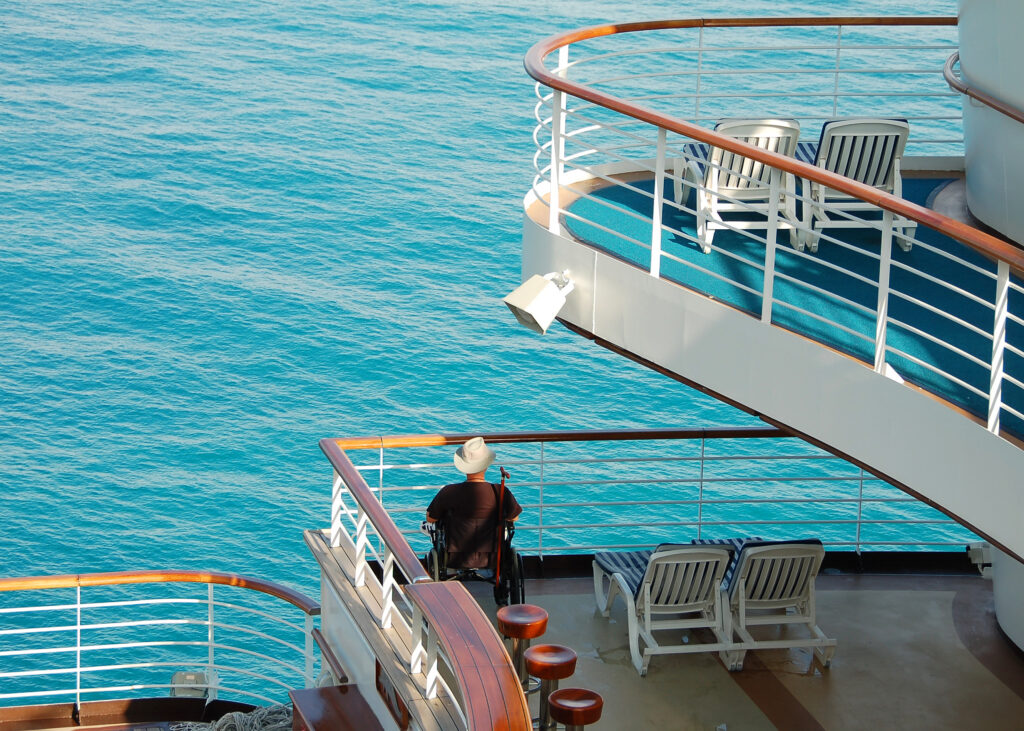
This image is property of www.thetimes.co.uk.
Navigating the Ship
Once onboard the ship, proper navigation is essential for individuals with mobility issues. Familiarizing yourself with the ship layout and utilizing the available accessibility options can greatly enhance your cruise experience.
Elevators and Ramps
Cruise ships are equipped with elevators and ramps to provide easy access to different levels of the ship. Make sure to familiarize yourself with the location of these elevators and ramps to minimize any inconvenience during your cruise. Elevators are typically wheelchair-accessible and can accommodate mobility aids such as scooters or walkers.
Ship Layout
Get acquainted with the ship layout to ensure you can easily navigate from one area to another. Pay attention to the location of accessible facilities, such as accessible restrooms, dining areas, and entertainment venues. Most ships provide detailed maps and signage to assist passengers, including those with mobility issues, in finding their way around.
Onboard Mobility Aids
Cruise ships offer various mobility aids that can be rented or used during your voyage. These aids can greatly enhance your mobility and provide ease of access to various facilities and activities.
Wheelchair Rental
If you do not have a wheelchair but require one during your cruise, most cruise lines offer wheelchair rental services. You can arrange for a wheelchair to be delivered to your cabin upon embarkation, allowing you to easily move around the ship and participate in various activities.
Scooter Rental
For individuals with more significant mobility issues, renting a mobility scooter may be a viable option. Scooters provide increased independence and freedom to explore the ship and its amenities. Cruise lines often have partnerships with scooter rental companies, making the process convenient and seamless.
Personal Mobility Devices
If you use a personal mobility device, such as a walker or cane, it is essential to ensure that the ship’s facilities can accommodate these devices. Most cruise ships have accessibility features in place to accommodate mobility aids, such as wider doorways and accessible ramps. It is advisable to check with the cruise line beforehand to confirm the compatibility of your specific mobility device with the ship’s layout.
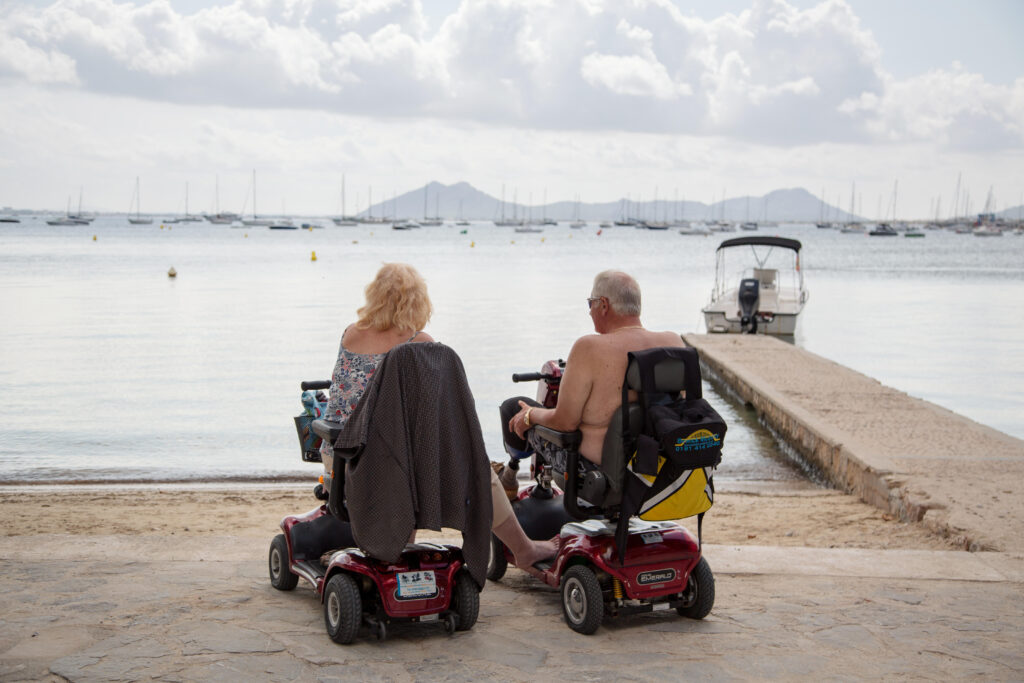
This image is property of s3.amazonaws.com.
Accessible Facilities and Amenities
Cruise ships strive to provide accessible facilities and amenities to ensure that all passengers can fully enjoy their vacation experience. Here are some key areas where accessibility is prioritized.
Accessible Restrooms
Cruise ships have accessible restrooms strategically located throughout the ship to ensure accessibility for individuals with mobility issues. These restrooms are equipped with grab bars, lowered sinks, and wider doorways to accommodate wheelchairs and mobility aids.
Swimming Pools and Hot Tubs
Many cruise ships have accessible swimming pools and hot tubs to enable individuals with mobility issues to enjoy water-based activities. These pools and hot tubs are designed with hydraulic lifts or ramps to facilitate easy entry and exit, ensuring that everyone can relax and have fun.
Theaters and Showrooms
Cruise ships often have accessible seating areas in theaters and showrooms to ensure that individuals with mobility issues can enjoy live performances and entertainment. These areas are equipped with designated spaces for wheelchairs and mobility aids, allowing for a comfortable viewing experience.
Dining Options
Cruise ships offer a variety of dining options, including accessible restaurants and dining areas. These venues are designed to accommodate individuals with mobility issues, with features such as spacious layouts, lowered tables, and priority seating options. Cruise lines typically have trained staff who can provide any necessary assistance or accommodations during meal times.
Excursions and Shore Activities
When planning shore excursions and activities, it is crucial to consider the accessibility of the destinations. Some ports may have limited accessibility, making it difficult for individuals with mobility issues to fully participate. However, many cruise lines offer accessible excursions that cater specifically to individuals with mobility challenges, ensuring an enjoyable experience for all passengers.
Medical Care and Support
Cruise ships are equipped with medical facilities and services to provide necessary care and assistance for passengers with mobility issues. It is important to be aware of the available medical support to ensure a safe and comfortable vacation.
Medical Facilities Onboard
Cruise ships have medical facilities and clinics staffed with trained medical professionals who can provide basic medical care and assistance. These facilities are equipped to handle common medical issues and emergencies, ensuring that passengers with mobility issues have access to the necessary medical care while on board.
Accessible Medical Services
Cruise lines understand the importance of providing accessible medical services to passengers with mobility issues. They prioritize accessibility by ensuring that medical facilities and services are fully wheelchair-accessible and equipped with the necessary equipment to accommodate individuals with mobility challenges.
Medication Management
If you require medication management while on your cruise, it is crucial to communicate your needs to the medical staff onboard. They can assist with medication storage, administration, and any additional support you may require. It is advisable to carry a sufficient supply of your prescribed medications and keep them in your carry-on luggage for easy accessibility.
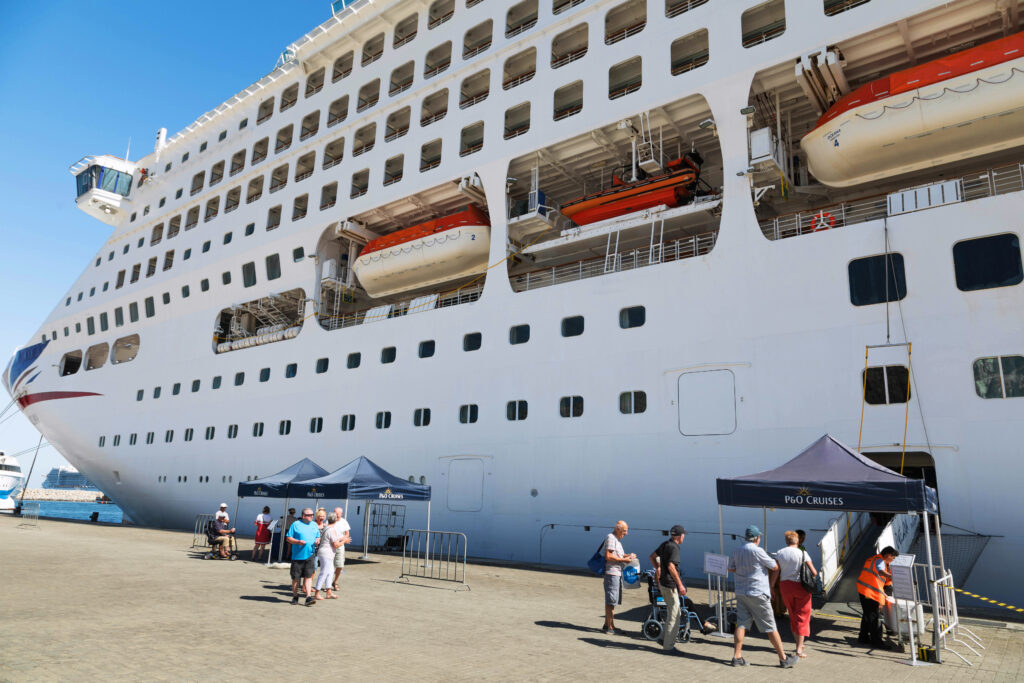
This image is property of www.thetimes.co.uk.
Safety Considerations
Safety should always be a top priority when cruising, especially for individuals with mobility issues. Being aware of the safety procedures and plans in place can help ensure a worry-free experience.
Emergency Procedures
Cruise ships have comprehensive emergency procedures in place to handle various scenarios. It is important to familiarize yourself with these procedures, including evacuation protocols and emergency assembly points. Individuals with mobility issues may need to consider their specific evacuation needs and communicate any concerns with the cruise staff.
Evacuation Plans
In the event of an emergency or evacuation, cruise lines have evacuation plans that cater to individuals with mobility issues. These plans include designated evacuation routes, assistance from trained crew members, and the availability of evacuation chairs or lifts to ensure a safe and efficient evacuation process for everyone on board.
Safety Awareness
Maintaining a high level of safety awareness is crucial for individuals with mobility issues. It is important to be mindful of potential hazards, such as uneven surfaces or obstacles, and take necessary precautions to prevent accidents or injuries. Utilizing mobility aids appropriately and seeking assistance when needed can greatly contribute to ensuring a safe and enjoyable cruise experience.
Travel Insurance
Obtaining comprehensive travel insurance is highly recommended for individuals with mobility issues. Travel insurance provides valuable coverage and protection in case of unforeseen circumstances or medical emergencies during your cruise vacation.
Importance of Travel Insurance
By having travel insurance, you can have peace of mind knowing that you are financially protected in the event of trip cancellations, lost belongings, medical emergencies, or unexpected flight disruptions. This coverage is especially important for individuals with mobility issues, as it can provide assistance and support tailored to your specific needs.
Specific Coverage for Mobility Issues
When selecting a travel insurance plan, it is crucial to ensure that it offers specific coverage for mobility issues. This can include reimbursement for medical expenses related to your mobility needs, coverage for mobility aids in case of loss or damage, and additional support such as medical evacuation or repatriation in the event of a medical emergency.
In conclusion, individuals with mobility issues can definitely go on a cruise and have an incredible experience. By understanding the types of mobility issues and the challenges that may be faced, choosing the right cruise line and accommodations, properly preparing and planning for the trip, utilizing accessible facilities and amenities, and considering safety measures and travel insurance, individuals with mobility issues can confidently embark on a cruise vacation filled with relaxation, fun, and memorable moments.
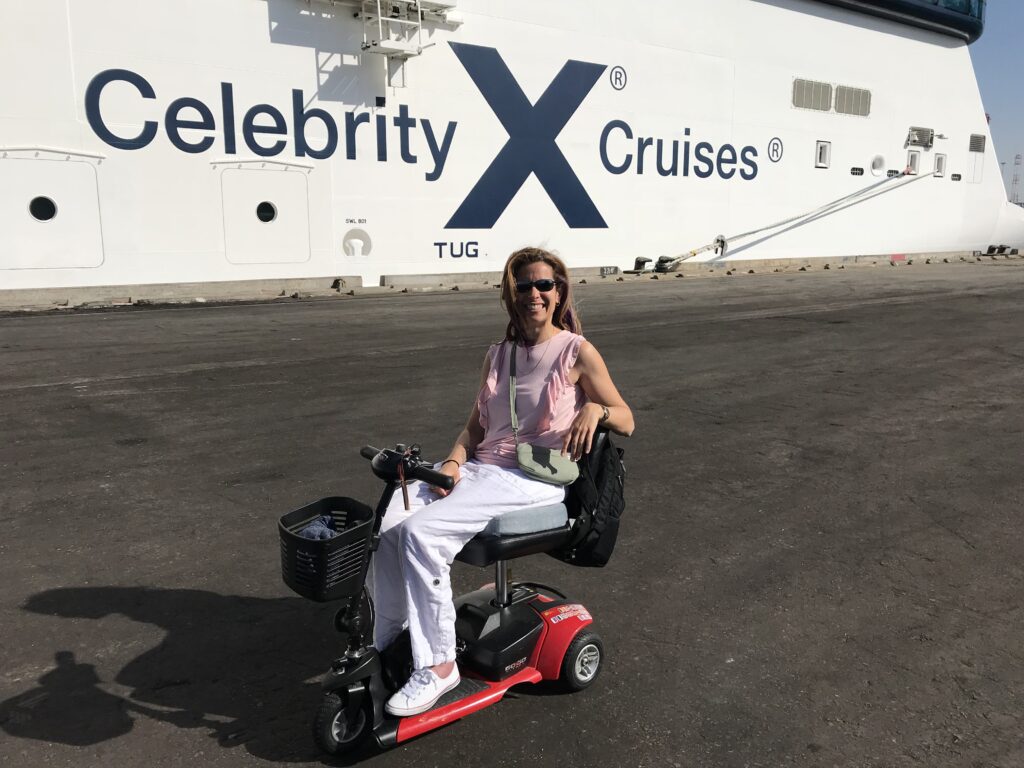
This image is property of i0.wp.com.
Hi, I'm Mike, the author of Ocean Bliss Journeys. As the captain of this incredible website, my mission is to provide you with the ultimate sailing experience. Set sail on a journey of discovery with us and indulge in the perfect mix of adventure and relaxation. Our handpicked cruises offer unparalleled luxury and unforgettable destinations. From romantic getaways to family vacations and hidden gem exploration, I've carefully curated tailored packages to ensure every moment is cherished. So, join me and embark on your dream cruise today. Let's create memories that will last a lifetime.

